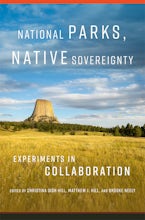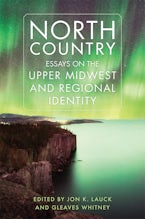- Home
- history
- political science
- The Good Country
The Good Country
A History of the American Midwest, 1800–1900
by Jon K. Lauck
Published by: University of Oklahoma Press
Imprint: University of Oklahoma Press
366 Pages | 6 x 9 | 1 map
$26.95
$65.00
$24.95
At the center of American history is a hole—a gap where some scholars’ indifference or disdain has too long stood in for the true story of the American Midwest. A first-ever chronicle of the Midwest’s formative century, The Good Country restores this American heartland to its central place in the nation’s history.
Jon K. Lauck, the premier historian of the region, puts midwestern “squares” center stage—an unorthodox approach that leads to surprising conclusions. The American Midwest, in Lauck’s cogent account, was the most democratically advanced place in the world during the nineteenth century. The Good Country describes a rich civic culture that prized education, literature, libraries, and the arts; developed a stable social order grounded in Victorian norms, republican virtue, and Christian teachings; and generally put democratic ideals into practice to a greater extent than any nation to date.
The outbreak of the Civil War and the fight against the slaveholding South only deepened the Midwest’s dedication to advancing a democratic culture and solidified its regional identity. The “good country” was, of course, not the “perfect country,” and Lauck devotes a chapter to the question of race in the Midwest, finding early examples of overt racism but also discovering a steady march toward racial progress. He also finds many instances of modest reforms enacted through the democratic process and designed to address particular social problems, as well as significant advances for women, who were active in civic affairs and took advantage of the Midwest’s openness to women in higher education.
Lauck reaches his conclusions through a measured analysis that weighs historical achievements and injustices, rejects the acrimonious tones of the culture wars, and seeks a new historical discourse grounded in fair readings of the American past. In a trying time of contested politics and culture, his book locates a middle ground, fittingly, in the center of the country.
Jon K. Lauck, the premier historian of the region, puts midwestern “squares” center stage—an unorthodox approach that leads to surprising conclusions. The American Midwest, in Lauck’s cogent account, was the most democratically advanced place in the world during the nineteenth century. The Good Country describes a rich civic culture that prized education, literature, libraries, and the arts; developed a stable social order grounded in Victorian norms, republican virtue, and Christian teachings; and generally put democratic ideals into practice to a greater extent than any nation to date.
The outbreak of the Civil War and the fight against the slaveholding South only deepened the Midwest’s dedication to advancing a democratic culture and solidified its regional identity. The “good country” was, of course, not the “perfect country,” and Lauck devotes a chapter to the question of race in the Midwest, finding early examples of overt racism but also discovering a steady march toward racial progress. He also finds many instances of modest reforms enacted through the democratic process and designed to address particular social problems, as well as significant advances for women, who were active in civic affairs and took advantage of the Midwest’s openness to women in higher education.
Lauck reaches his conclusions through a measured analysis that weighs historical achievements and injustices, rejects the acrimonious tones of the culture wars, and seeks a new historical discourse grounded in fair readings of the American past. In a trying time of contested politics and culture, his book locates a middle ground, fittingly, in the center of the country.
Jon K. Lauck is the past president of the Midwestern History Association, teaches history and political science at the University of South Dakota, and is Editor-in-Chief of Middle West Review. He has authored or edited several books, including The Lost Region: Toward a Revival of Midwestern History; Daschle vs. Thune; Finding a New Midwestern History; and three volumes of The Plains Political Tradition.
“Of the myriad American diversities—racial, ethnic, religious, lifestyle—one is often neglected: the durable diversity of the nation’s regions. Jon K. Lauck redresses this imbalance by restoring the middle of the nation to its proper place in the middle of the national story. You do not need to be a Midwest chauvinist—I, a son of Central Illinois, am one—to appreciate his appreciation of this region’s nation-shaping role, and between 1861 and 1865 its nation-saving role.”—George F. Will
“Lauck’s full-throated celebration of America’s democratic traditions is an invitation to today’s most important debate.”—John Mack Faragher, author of California: An American History
“I know of no historian who has done such a superb job chronicling and framing the history of the American Midwest than Jon Lauck.” —Gregory L. Schneider, author of Rock Island Requiem: The Collapse of a Mighty Fine Line
“In this detailed examination of 19th-century social history from Ohio westward to Nebraska, Lauck presents an impassioned defense of the American Midwest against its critics, marshaling a formidable set of historical and cultural data that future critics will not be able to ignore.”—Omaha World Herald
"Well-researched and provocative."—The Washington Post
“…the breadth and depth of Lauck’s research, and the amplitude of his footnotes, are all the defenses this book needs; I would recommend it as one of the first books of Midwest history a person might read.” – Phil Christman, The New Republic
“The Good Country offers powerful a call-to-action for scholars to appreciate the Midwest’s positive impact on United States history, writ large.”—South Dakota History
2022 -
History Book Prize, Society for Midland Authors -
Short-listed












